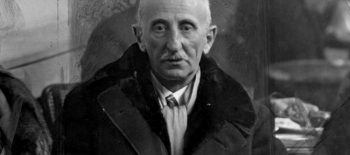When independent Poland was being re-born in 1918, its existence became endangered by the Soviet Russia which, propagating self-determination of nations, in fact aimed at imposing its totalitarian communist ideology upon them. Poland was the first step on the path towards a further conquest.
However, in August 1920, not just Poland’s but also entire Europe’s future was determined by the Battle of Warsaw of 1920, victorious for the Polish Armed Forces. Not only did the battle bring defeat to the Red Army, but it also suppressed the attempts to sovietise European nations by the forceful, armed spread of the world proletarian revolution. At the time, the Polish Army, thanks to the determination and consistency of its soldiers, and the talent of its chief commanders, saved Europe from being engulfed in war yet again. The losses on the Polish side in the 1919-1920 war with the Bolsheviks were, as for that time, heavy – a hundred thousand dead, including many killed in action, or missing, and twice as much wounded.
Repelling the Bolsheviks’ attack on the Poland’s capital was a landmark moment for reinforcing the independent Poland as well as other, newly established national states in Central Europe. It averted the risk of the collapse of the Versailles system and provided Europe with an opportunity for attempting peaceful international co-existence.
The Battle of Warsaw sends a universal message that we need to counteract dictators and that making sacrifices is effective in protecting freedom.
Lord Edgar Vincent D’Abernon, an English diplomat and a member of the Interallied Mission to Poland who witnessed the events of August 1920, described them in his book titled The Eighteenth Decisive Battle of the World. Warsaw, 1920 in such words: ‘The modern history of civilisation knows but few events of greater importance than that of the Battle of Warsaw of 1920. And it knows of none other which would be so little valued…’



